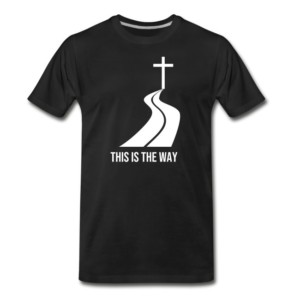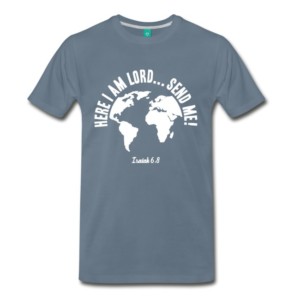He said to Aaron, “What did these people do to you, that you led them into such great sin?” “Do not be angry, my lord,” Aaron answered. “You know how prone these people are to evil. They said to me, ‘Make us gods who will go before us. As for this fellow Moses who brought us up out of Egypt, we don’t know what has happened to him.’ So I told them, ‘Whoever has any gold jewelry, take it off.’ Then they gave me the gold, and I threw it into the fire, and out came this calf!” (Ex. 32:21-24, NIV).
The idea of accountability is not something most people love to volunteer for. It has been a part of many leadership examples and activities during my career. Some people are naturally accountable to feedback, listen earnestly, and decipher how they can improve based on if the feedback was constructive or not.
Other people, however, get very defensive when they receive feedback; they make excuses and find other people to blame. I can tell you that my favorite people to lead are those who are accountable. They have a positive attitude and own up to their mistakes. It takes overall less work to lead these types of people.
Self-reflection and seeking out input from those your trust is important. John Wesley was so concerned with building a righteous fellowship that he devised a series of questions for his followers to ask each other every week. Some found this rigorous system of inquiry too demanding and left.
Today, the very idea of such a procedure would horrify many churchgoers. Yet some wisely follow just such a practice. Chuck Swindoll, for example, has seven questions that he and a group of fellow pastors challenge each other with periodically (C. Colson, The Body).
Aaron was a big help to Moses. God allowed Aaron to join Moses after Moses complained about not being a good speaker (Ex. 4:14). Aaron was side by side with Moses through all the miracles and exodus of the Israelites. Aaron was also the first High Priest of Israel. For all of the positives of Aaron, he had two major flaws; he gave in to peer pressure and he was not accountable to his actions as we saw in Exodus 32.
Aaron knew the power and miracles of the Most High God. He knew the commandment to have “no other gods before me” (Ex. 20:3, NIV). So why did he give into the Israelites’ demand for a golden calf while Moses was away? Aaron was weak; he feared what man thought of him more than God. He gave in and probably prepared his excuse ahead of time for when Moses came back. He had to have known things would not end well based on the nature of God, but he still did not have the backbone to make a stand.
What stood out to me in Aaron’s excuse was how unaccountable he was to the whole situation. He blamed how evil the people were, not how evil his actions were. He tried to diminish his hand in the matter when he stated that “Then they gave me the gold, and I threw it into the fire, and out came this calf!” (Ex. 32:24).
I mean, I’ve heard some poor excuses from my kids before, but this is just laughable, right? The better response would have been a confession of his sin, asking for forgiveness, and pleading with God on behalf of the people. Instead, what happened, as a result, was that about 3,000 people died that day.
Athlete Wes Fessler is quoted as saying, “Good men are bound by conscience and liberated by accountability.” Holding yourself responsible for your actions may be difficult, but it is freeing. The weight of the guilt and blame can only be pushed aside or pushed to someone else for so long until it comes crashing back at you.
So what does accountability look like when it comes to following God? Here are some examples:
- Hearing a message from a pastor and applying it to your life versus thinking about someone specific that it best applies to… like your spouse sitting next to you.
- When your sin is confronted, exposed, or confessed, you are completely open about why it happened to begin with. You do not blame someone else or your circumstances.
- You’ve probably heard the term “accountability partner.” I feel there is a definite benefit to having someone like this who you can be open and honest with. This is someone who can walk alongside you without judgment and that will push you past where you want to go versus where you need to go in Christ.
- Seek out feedback; ask someone close to you how they see your walk with God. What are the ways they think you can be a better disciple of Jesus?
If we are penitent and contrite in our responses to the feedback we receive or the sin that has been revealed in us, we have a real chance at growing in our spiritual walks with the Lord. “God opposes the proud but shows favor to the humble” (James 4:6, NIV). Despite what your fleshly inclination might be, choose repentance, choose humbleness, and you will find the freedom and forgiveness of God.
Discerning Reflection: What is an area of my life that is not being accountable to God? Why am I hesitant about seeking out feedback from other Christians? Do I have an accountability partner, and if so, am I making enough time with him/her?
Prayer: Lord, help me be accountable to my sin, help expose areas that need to have Your light of truth revealed to me. Thank You for Your grace and patience with me. May I be a good example to those around me and help them as well on their walk with you, Jesus. Amen.
This is an updated edition originally posted on discerning-dad.com
Featured Image by Kelly Sikkema














